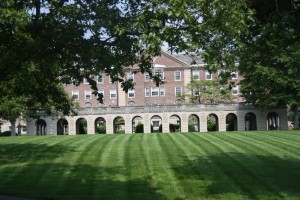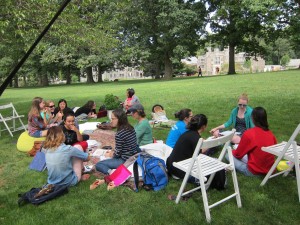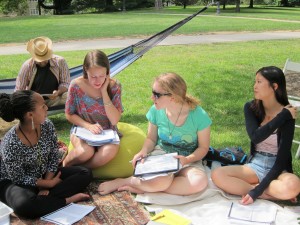 What does it mean to be mindful, and can we measure it? In Psychology of Mindfulness, we took the Five Facet Mindfulness Questionnaire (FFMQ – an online version can be found here) this week. The five facets are: observing, describing, non-judging of one’s inner experiences, non-reactivity, and awareness.
What does it mean to be mindful, and can we measure it? In Psychology of Mindfulness, we took the Five Facet Mindfulness Questionnaire (FFMQ – an online version can be found here) this week. The five facets are: observing, describing, non-judging of one’s inner experiences, non-reactivity, and awareness.
Along the same lines in the class on contemplation in the West, we are considering what constitutes elected silence. Is silence a necessary pre-condition for contemplation? We have been reading the 4th desert fathers and mothers, including Abba Moses who tells a supplicant “sit in your cell and your cell will teach you everything;” while Amma Syncletica suggests exterior location isn’t the issue, but the interior landscape is: “It is possible to be a solitary in one’s mind while living in a crowd; and it is possible for those who are solitaries to live in the crowd of their own thoughts.”
We are off to mindfully explore silence at the Jesuit Center, a retreat center located about 60 miles northwest of Bryn Mawr, on the grounds of an old Jesuit novitiate. We will spend parts of each day in silence, seeing if we can grasp what is so alluring about silence that for centuries people have left everything behind to seek it. When we return, we will be reading some narratives of silence.
 We gathered at Pembroke Arch at 3:45 in the morning. I watched as groups of students materialized out of the mist, carrying just a single bag. We had 24 hours of travel in front of us, two bus rides, two plane rides.
We gathered at Pembroke Arch at 3:45 in the morning. I watched as groups of students materialized out of the mist, carrying just a single bag. We had 24 hours of travel in front of us, two bus rides, two plane rides.


